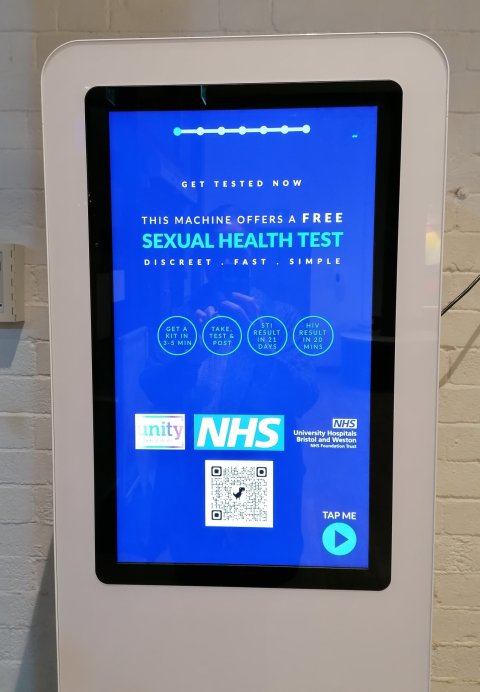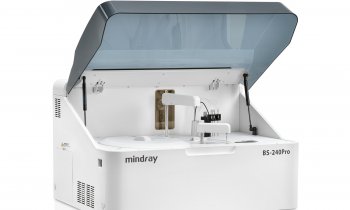News • Sexual health pilot project
Vending machines offer convenient STI testing
A pilot project across several sites in the UK has assessed the level of acceptance for easily accessible machines for sexual health testing.

Image source: Brighton and Sussex Medical School
In a ground-breaking, year-long pilot programme, vending machines dispensing self-test kits for sexually transmitted infections (STIs) have proven to be an effective and widely accepted means of reaching individuals who rarely or never get tested. The results of the pilot, published online in the journal Sexually Transmitted Infections, suggest that these machines should be integrated into the digital landscape of sexual health services.
Conducted across 11 publicly available vending machines in Brighton and Hove (7 sites) and Bristol, North Somerset and South Gloucestershire (4 sites) from April 2022 to March 2023, the initiative dispensed rapid HIV tests and self-sampling kits for various STIs. A total of 2536 kits were distributed, with 208 users providing feedback through questionnaires.
The organisations involved in the study were Brighton and Sussex Medical School (BSMS), the University of Bristol, University Hospitals Sussex NHS Foundation Trust and the National Institute for Health and Care Research Applied Research Collaboration West.
The findings revealed that self-sample kits for STIs were the most popular, accounting for 74% of vends, primarily among the 16–35 age group. Notably, 68% of users had not tested for STIs in the past 12 months, and 59% had never undergone testing. While 51% of the kits were returned by post, concerns about safety (42%) and privacy (66%) were reported by some respondents.
Vending machines [...] have a role in normalising testing for STIs such as HIV – this is about getting services to the community and empowering users to look after their sexual health
Jaime Vera
The convenience of instant access and increased confidentiality emerged as the primary reasons for utilising vending machines. A remarkable 92% of respondents found the machines user-friendly, and 97% expressed willingness to recommend the service.
Prof Jaime Vera, Chair in HIV Medicine at BSMS and co-author of the study, said: “Vending machines have the potential to increase access to sexual and reproductive health services for people that don’t engage with traditional healthcare facilities. They also have a role in normalising testing for STIs such as HIV – this is about getting services to the community and empowering users to look after their sexual health.”
In 2022, approximately half of sexual health service consultations in England were conducted face-to-face. Factors like difficulty securing appointments, time constraints, travel costs, and stigma from healthcare professionals deterred individuals from seeking these services. Vending machines could address these barriers, providing a more accessible alternative.
In the study, the researchers highlight the importance of conducting economic evaluations to assess whether vending machines represent a cost-effective option to alleviate the demand on clinics, thereby enhancing their capacity to provide timely care to individuals with complex needs.
Source: Brighton and Sussex Medical School
07.02.2024











